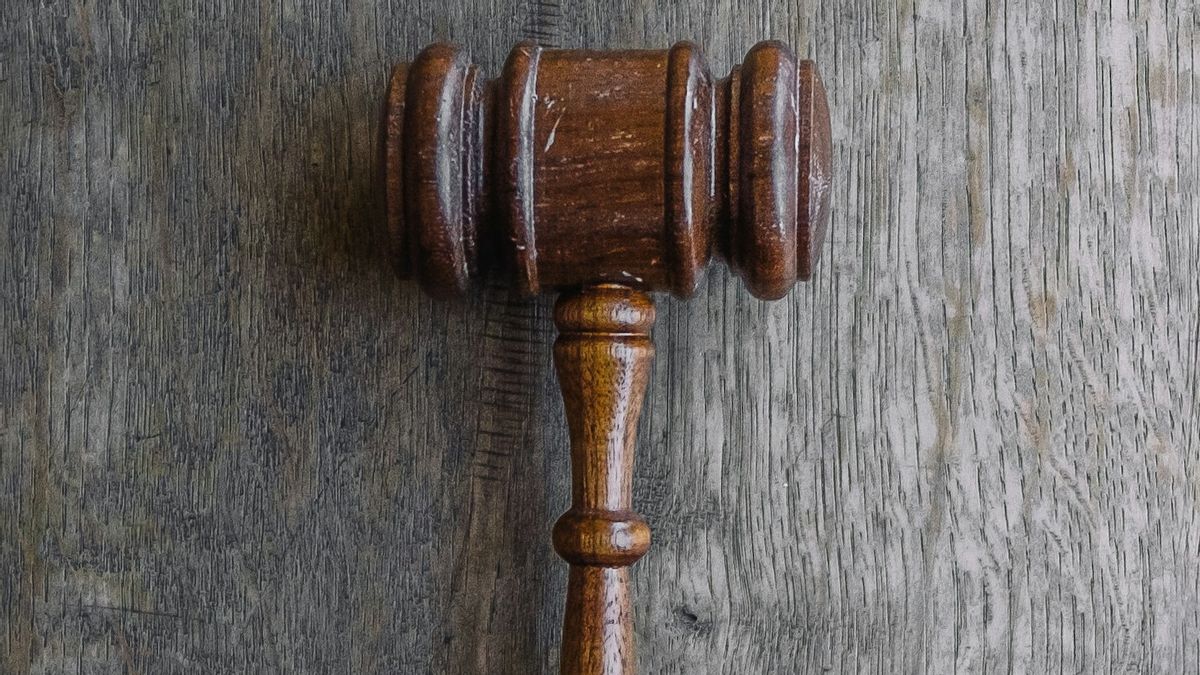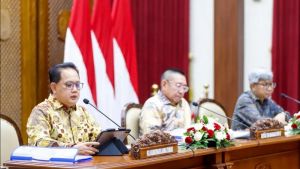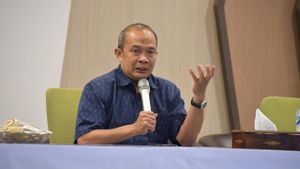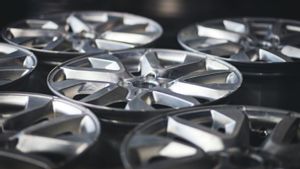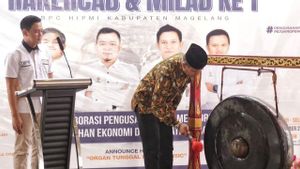JAKARTA - Asbes roof entrepreneurs are suing the Supreme Court's decision to revoke the regulation of the Minister of Trade Number 25 of 2021 which neglects to stipulate the obligation to label how to use and commemorate hazards on asbestos roof products.
Unmitigated, the Fiber Cement Manufacturing Association (FICMA) also sued the management of non-governmental consumer protection institutions (LPKSM) who submitted a judicial review of the trade minister's regulation to pay compensation of IDR 7.9 billion per month with forced money of IDR 5 million per day.
FICMA argued that due to the revocation of the trade minister's regulation set by the Supreme Court, entrepreneurs suffered losses of opportunity lost worth IDR 7.98 trillion. Facing a lawsuit from the employers' association, LPKSM administrator Yasa Nata Budi as the defendant is optimistic that he will win the case.
One of the defendants in the LPKSM management, Leo Yoga Pranata in a press release in Jakarta, yesterday said that the FICMA lawsuit regarding the Supreme Court's decision on the lawsuit previously filed by LPKSM Yasa Nata Budi. "When we sued the Supreme Court, we used the rights as consumer protection institutions to defend consumer interests against clear, honest and clear information on the roof products of the asbestos circulating in the market," he explained.
Leo explained that the victory of LPKSM Yasa Nata Budi in the case at the Supreme Court gave a breath of fresh air in protecting consumers from the dangers of disease due to asbestos. He said he was surprised by the reaction from the Asbestos industry that was suing back. "We respect the constitutional rights of the FICMA even though we think their lawsuit is wrong. It is better for FICMA to rethink suing consumer rights to obtain correct information on the products they will consume," said Leo.
Separately, the Coordinator of Indonesia Ban Asbestos, Muchammad Darisman explained, the legal steps taken by FICMA by suing consumer interests are a bad precedent for the legal certainty of consumer protection in Indonesia.
According to him, consumers who are getting smarter in deciding their consumption are constitutional mandates that must be met by the state. "This is a consumer protection agency that wants to educate the public by asking for labeling the dangers and procedures for using the roof of the asbestos, how come they are silent with lawsuits," he sued.
Darisman emphasized that the disease advocacy network due to the asbestos he leads will continue to support LPKSM's efforts against the efforts of the roof company asbestos to cover the facts of the dangers of asbestos.
"We will not remain silent, together we will face efforts to limit consumer rights to be smarter," he said.
Met on different occasions, LION Indonesia, which has been working to advocate for the dangers of asbestos since 2010, stated that the Supreme Court's decision that producers must include a proper label of danger and use procedures is the right of consumers.
The right to obtain clear, honest, and open information on consumer products is protected by the Consumer Law No.8 of 1999.
Indonesia has registered 6 workers with diseases due to exposure to asbestos in the workplace. An important lesson from this is the lack of information on the dangers and procedures for using workers, it turns out that they have claimed victims. We have an interest in preventing the wider number of victims from consumers on the roof of the asbestos," explained Surya Ferdian, Director of LION Indonesia.
Surya explained that many asbestos replacement materials have been found that can be used by the industry today. However, until the lawsuit was filed, it turned out that the replacement materials were not massive enough to be used.
"If the industry does not want to use replacement materials, then consumer businesses protect themselves and want to be accelerated, then it is a joint task to protect the legal strongholds of consumers in conflict with large capital. The public has the right to fight legally," said Surya.
LION Indonesia supports and will participate in defending Yasa Nata Budi's LPKSM against FICMA's lawsuit which according to her makes no sense. According to him, the LPKSM action that demands the cancellation of the regulation of the minister of trade that ignores the dangers of the asbestos is an attempt to save the FICMA. Compensation for people suffering from disease due to asbestos in the future is certainly not a low price.
SEE ALSO:
"We don't want the industry to pay dearly for the disease caused by asbestos in the future," he explained.
The World Health Organization (WHO) in 2014 issued a recommendation regarding the Distribution of Asbes Related Diseases in 2014 estimated to be around 125 million people in the world exposed to asbestos in the workplace. According to WHO estimates, more than 90,000 people die each year from lung cancer related to asbestos, mesothelioma, and asbestosis due to exposure in the workplace. One in every three cancer deaths from work is thought to be caused by asbestos.
In Indonesia itself, Government Regulation of the Republic of Indonesia Number 74 of 2001 concerning Management of Hazardous and Toxic Materials includes synomous asbestos/asbestos under the trade names Amianthus and Chrysolite (crisotils) are harmful and toxic materials.
This is also stated in the Regulation of the Minister of Health Number 472 of 1996 concerning Safety of Hazardous Materials for Health, which lists asbestos as a dangerous ingredient that has toxic and carcinogenic properties.
The English, Chinese, Japanese, Arabic, and French versions are automatically generated by the AI. So there may still be inaccuracies in translating, please always see Indonesian as our main language. (system supported by DigitalSiber.id)
